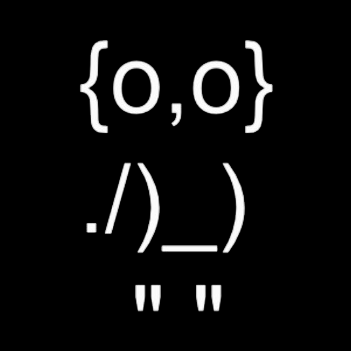I’m looking to set up a machine for my stepdad to record and edit music on. Audacity is the first choice that comes to mind, but I’m wondering if there are better/more fitting to usecase options out there.
Ardour. Fun fact, it’s primarily developed by Paul Davis who was one of like two other people in the garage with Bezos working on building Amazon at the start. He took that windfall and just used it to retire and work on FOSS passion projects the rest of his life.
For a recording computer, the very first thing you’re going to want is a low-latency audio interface you can plug microphones into. These don’t have to be terribly expensive, but you don’t want to go too cheap. My favorite bang-for-the-buck interfaces are the Behringer UMC204HD or UMC22, but if you think you might need technical support better go with something like a Focusrite Scarlett.
Then, you need software that can use the low-latency ASIO drivers for the interface, which Audacity can’t unless you build it yourself from source code. The reason you want low latency is that it lets you listen to what you’re recording actually sounds like as you’re recording it, without a distracting delay between the sound in the real world and the sound in your headphones.
So, you need a DAW. Ardour is open source but it isn’t free on Windows; Reaper is a better choice, even though it isn’t open source. No DAW at any price is better than Reaper for tracking live instruments. It’s widely used in professional contexts. It’s also wicked fast, and the tutorial videos on YouTube are fantastic (Reaper Mania channel) and well-organized in practical use cases.
The main “drawback” with Reaper is that its built-in mixing effects prioritize functionality and power over appearance; you kinda have to know what each slider and knob is supposed to do (or look it up), and there aren’t a ton of presets to fall back on, even though everything you need is actually in there. It also doesn’t come with loop packs or software instruments like digital synths or sampled pianos etc. like more expensive DAWs do. But resist the urge to solve these “drawbacks” with money - there are tons of free and/or open source plugins and software instruments out there for the searching - look at Decent Sampler / Pianobook and Spitfire Labs for instruments, ReaPack for community-built Reaper extensions (especially the Tukan stuff), Kilohearts and Melda for excellent free utility plugin bundles (that duplicate things Reaper can already do, for the most part, but with friendlier interfaces).
Seconding Reaper. It’s leaps and bounds ahead of Ardour and the Linux version of Reaper is more stable than Ardour in my experience. Even though it’s not open source, it’s essentially an indie project and it’s extremely well made. I hope that it will be open sourced when the guy retires.
He’s already got an interface, so that step is out of the way. A lot of people in these comments recommend reaper, so I’m thinking of going with that.
Literally just pirate virtual instruments. Most of the best ones are cracked.
If you ever make lots of money you can buy a license later.
You want Reaper over audacity. (Even though iirc it is proprietary).
There is a FOSS true DAW on Linux I tried once. It was decent on its own, but plugin support was ass.
Audacity is an excellent recording program.
Hydrogen is an excellent drum machine.
There is a free software DAW named Ardour which seems pretty complex, but I don’t do enough audio production to compare it against commercial alternatives.
LMMS is also pretty cool.
Then there’s always MilkyTracker if you want to go medieval.
IMO, where FOSS audio production shines is not in any specific DAW software, but in the capabilities offered by toolkits like Jack and PipeWire to take audio and MIDI outputs of any program and plug them into the inputs of any other program. The ability to run commercial VST plugins in WINE is a bonus.
There are dozens of arbitrary synthesizers and sequencers out there, all with unique perks and rough edges. But there is strong infrastructure to create a pipeline from all of these individual components. You are required to fuck around with it.
Reaper!
Also, not open source, but Cakewalk is free nowadays.
Reaper is the DAW of the proletariate
I know your a musician who does a lot of gigs, so your endorsement means a lot.
The website for it says it has 60 days free before requiring a license. Does it still work when the trial ends?
From what I’ve heard, Reaper just puts up a “please buy a license” window on startup after that, which lets you click through to continue using the full-featured program after a short wait.
Can confirm.
Yes, it’s just nagware like WinRAR.
For what it’s worth, Cakewalk doesn’t do this, but it does have a licensing gremlin program that runs on startup, constantly checks for updates, always nags you to update, and occasionally requires you to log in to their site again to renew your (free) license. I have an easier time with the user interface on Cakewalk because I started off with SONAR like 20 years ago, so it’s more familiar/intuitive for me.
Reaper has all the same capabilities, though, and doesn’t have the baggage of a weirdly intrusive DRM model. There are also a lot more Reaper tutorials out there.
Audacity is the actually FOSS answer, afaik. I’ve used it a lot, but not for music (much). It’s not a DAW, but if it’s just recording and stitching tracks together it will 100% work, and with some effort you can do fancier stuff.
There’s also Ardour and Zrythm which are more real DAWs Ithink? but I know nothing about them. Maybe try ardour if you already know you don’t want to do audacity
I just like to record myself playing the guitar once in a while and use Ardour with my UMC 22 audio interface. For me it is just great… I can record my voice and guitar, use some plugins to get a better sound out of my cheap guitar and mic… and record different tracks and sync them. I’d recommend Ardour and the behringer audio interface all the way.
Yeah if your needs are that simple and you don’t need tons of virtual instruments and crazy effects, Ardour is worth recommending.








